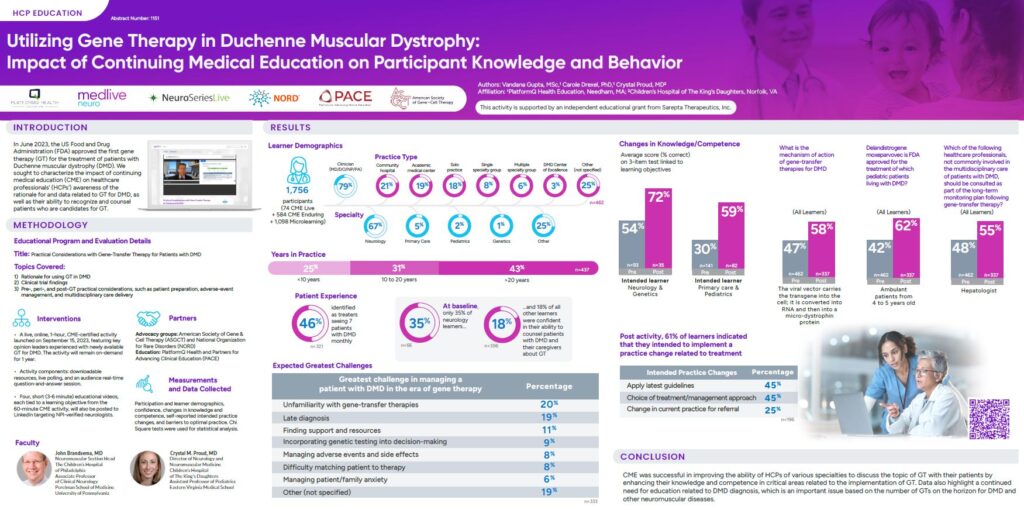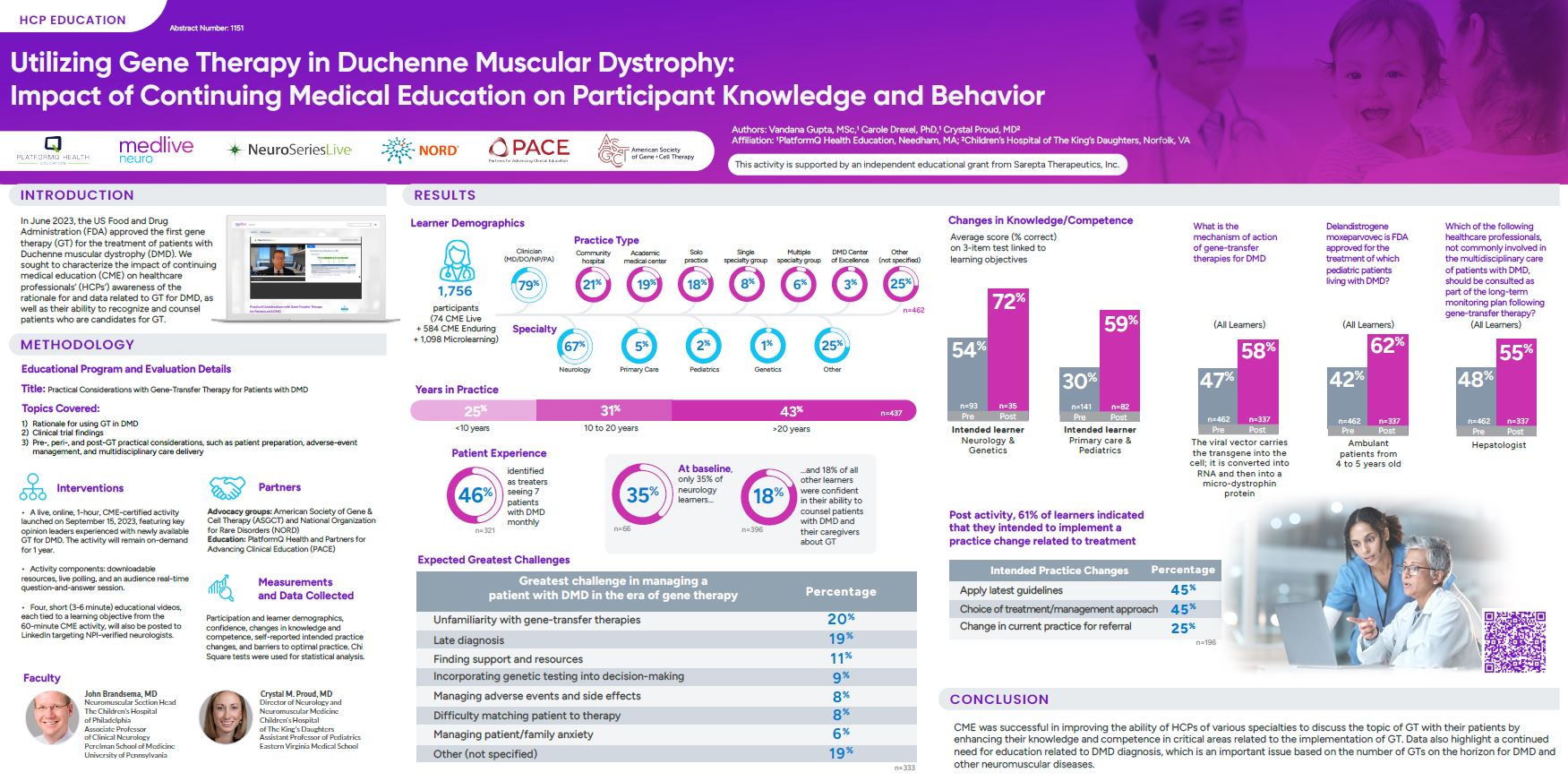Using Gene Therapy to Treat Duchenne Muscular Dystrophy
The first FDA-approved gene therapy for pediatric patients with Duchenne muscular dystrophy (DMD) is now available. This is a genetic disorder that presents as progressive muscle degeneration and weakness.
A live CME activity was held to educate clinicians about this newly available therapy. The program was led by key opinion leaders and developed in partnership with the National Organization for Rare Disorders and the American Society of Gene and Cell Therapy. The session covered:
- The rationale for using gene therapy in treating DMD
- Clinical trial results Practical considerations prior to, during, and after administration of gene therapy, such as helping prepare the patient, managing adverse events,
- and delivering multidisciplinary care
The CME activity included live polling, live Q&A with faculty from the Perelman School of Medicine at the University of Pennsylvania and Children’s Hospital of the King’s Daughters. The session featured four short educational videos, each tied to a particular learning objective. The materials were also shared with NPI-verified neurologists on LinkedIn. The CME content remained available on demand for one year.
Prior to the CME session, learners reported key challenges, including unfamiliarity with gene transfer therapies, late diagnosis, and finding support and resources. After the session, polling was conducted to assess the effectiveness of the program in achieving its learning objectives.
Of the 1,756 learners who participated in the program, 67% were neurologists. 46% identified as treaters seeing seven patients a month with DMD. Post-event activity demonstrated notable improvements in learner competence, including a 29% increase among primary care and pediatricians and 18% increase among neurologists and genetics specialists.
Post activity, 61% of learners said they intended to implement a practice change related to treatment. This may include:
- Applying the latest guidelines
- Choosing a new treatment or management approach
- Change in current practice for referral




